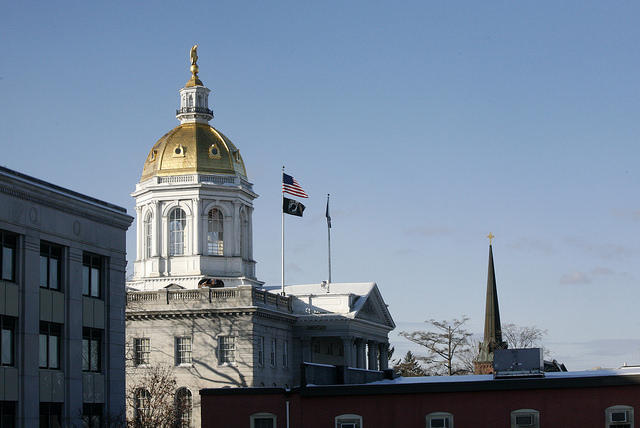By GARRY RAYNO, InDepthNH.org
CONCORD — The COVID-19 pandemic may trigger an increase in business tax rates, something Gov. Chris Sununu opposes.
State tax officials briefed the House Ways and Means Committee on the pandemic’s impact on business tax revenues and other key levies Tuesday.
While tax officials believe the economic rebound will be swifter than the recovery from the great recession of 2007 -2008, state revenues are not likely to return to prior levels until next year and some may lag behind that timeline.
While business, rooms and meals, interest and dividend, and real estate transfer taxes are expected to be well below budget writers’ estimates, other revenue areas are not as impacted such as the Fish and Game Department, liquor, tobacco and insurance premium revenues.
Committee members were told the speed of the state’s economic rebound depends on the income loss for many citizens and how quickly their earnings return to levels prior to the coronavirus epidemic.
Tens of thousands of workers lost their jobs when restaurants, hotels, retail stores and other “non-essential” businesses closed due to the governor’s stay-at-home order.
“This is all subject to change on a daily basis, we’re obviously in unprecedented times,” said Department of Revenue Administration Commissioner Lindsey Shepp. “We are in uncharted territories with nothing to look at for historical results.”
Overall, the state is facing a shortfall of about $200 million for the current 2020 fiscal year and about $300 million for the 2021 fiscal year from information provided to the committee during its all-day session Tuesday
Business Taxes
The business profits and enterprise taxes are the single biggest sources of revenue for the state, producing about one-third of all general and education fund revenue.
The budget agreement reached between legislators and Sununu included a trigger to increase business tax rates if returns were 6 percent or more below estimates.
The Democratic leadership sought to block a scheduled reduction in rates Jan. 1, 2019, but Sununu objected, and rates were reduced with the stipulation rates would return to the pre-Jan. 1 level if business revenues lagged.
Business tax revenue this fiscal year has been slightly below estimates but is expected to suffer greater declines before the end of the fiscal year June 20 due to the pandemic.
Department of Revenue Administration officials estimate business taxes will be below estimates by $117.6 million this year, and down $81 million for the months of April, May and June.
For the 2021 fiscal year, the agency believes business tax revenue will be $175.3 million below estimates.
Stepp said the picture will be clearer after they analyze June returns.
The agency projects business tax revenues to be down significantly through October with some improvement for November and December before going down 20 to 30 percent from January through April before rebounding again in May.
Ways and Means Chair Susan Almy, D-Lebanon, noted the estimates are very close to the 6 percent trigger the governor has mentioned.
Shepp said they are but the trigger is tied to the audited state report for the 2020 fiscal year which is usually released in December.
“One bit of good news in April, businesses paid in more than they did in the prior year,” Shepp said. “Calendar 2019 was a good year so they are coming off a good time for business which helps sustain revenue and delayed the impact on revenue from COVID.”
Shepp was asked if businesses would be taxed on the money they receive under the federal Payroll Protection Program through the CARES Act and the Main Street Relief Fund administered by the state with CARES Act money. State businesses have received $2.6 billion under the PPP and the Main Street program will distribute $400 million in grants.
She said the PPP is not federally taxable but could be taxable by the state if the money is a grant instead of a loan as would the grants through the Main Street program.
If the money is spent on expenses, it could be deductible as a business expense, but if it is used as cash to hold for later, it would be taxable, she said.
“We will continue to track the federal programs and the impact to revenue for 20 and 21,” Shepp said, noting another round of stimulus checks could increase rooms and meals revenues.





